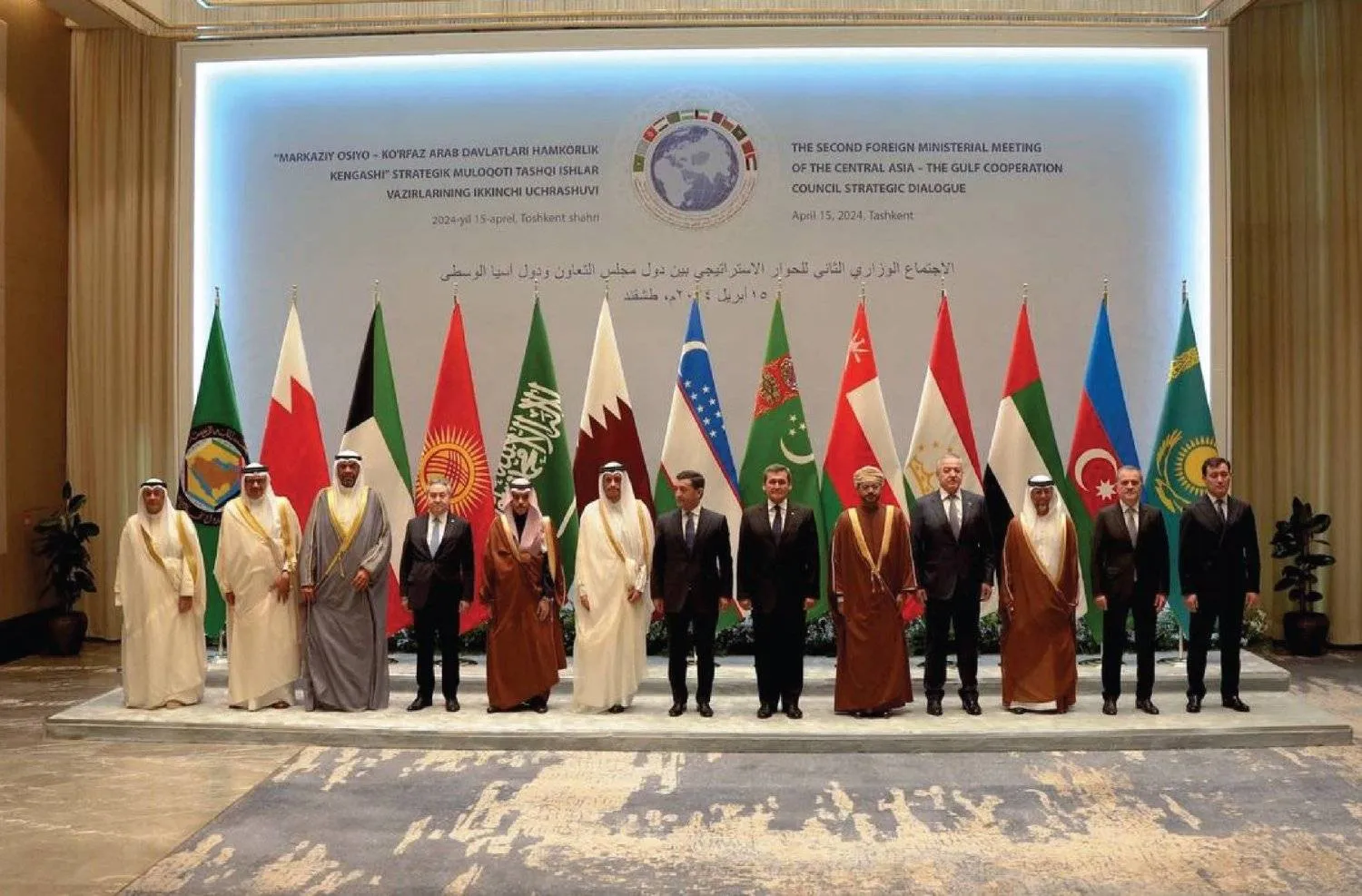The GCC-Central Asia Strategic Dialogue second ministerial meeting underscored on Monday the joint commitment to forming a sustainable and forward-looking partnership based on common values and mutual interests.
Meeting in Tashkent, the gatherers stressed the need to promote trade and investment exchanges between the two regions, noting the importance of cooperation to ensure sustainable supply chains, transport and transit connection, food, energy and water resources.
In a statement, they underlined the importance of implementing joint investment projects, developing clean energy, addressing environmental problems and sharing best practices in education and health.
They took note of proposals for investment promotion mechanisms from participating countries, including proposals by Tajikistan and Uzbekistan, and encouraged investment officials from both sides to study these proposals and explore effective mechanisms to promote investment between the two regions.
The parties, who are the Members States of the Islamic Organization for Food Security, emphasized the importance of supporting and boosting the activities of this Organization in food security issues.
They congratulated Saudi Arabia for hosting Expo2030 in Riyadh and expressed their readiness to spare no effort in supporting it in organizing the event successfully, and ensuring their effective participation, which will help promote economic and cultural exchanges between the countries of the GCC and Central Asia.
They exchanged views on regional and international issues and highlighted the importance of coordinating their positions through the mechanisms of the Strategic Dialogue.
They called on Israel to fulfill its obligations under international humanitarian law for the unimpeded provision of all humanitarian aid and basic needs to the population in Gaza.
They called on the international community to take a serious and firm stance for an immediate and sustainable ceasefire and providing protection for civilians in the Gaza Strip and the West Bank.
They re-emphasized the international nature of Palestinian issue and the need to resolve it through political means, with the establishment of an independent and viable Palestinian state along the 1967 lines, including East Jerusalem, in line with international law and all the relevant United Nations resolutions.
They expressed their hope to intensify cooperation between the GCC and Central Asia in security and border control, as well as in the joint fight against terrorism, transnational organized crime, human trafficking, illicit trafficking of narcotic substances, cyber security threats, money laundering and terrorism financing, while acting in line with the commitments to universal human rights and the rule of law.
They agreed on the importance of preserving the multilateral system and intensifying efforts to achieve peace, security, stability and prosperity around the world, giving priority to securing international peace and security through mutual respect and cooperation between countries to achieve development and progress.
They stressed the principles of good neighborliness, respect for the sovereignty, territorial integrity and political independence of states, non-interference in their internal affairs, refraining from the use of force or threats, and maintaining the international order based on adherence to the principles of international law and the UN Charter.
Uzbekistan’s Minister of Foreign Affairs Bakhtiyor Saidov chaired the meeting.
The participants were Qatari Prime Minister, Minister of Foreign Affairs, Chairman of the current session of the GCC Ministerial Council, and head of the GCC delegation Sheikh Mohammed bin Abdulrahman Al-Thani and the FMs of Uzbekistan, Saudi Arabia, Bahrain, Oman, Kuwait, Turkmenistan, Kyrgyz Republic and Tajikistan. The foreign minister of Azerbaijan was invited as a guest of honor.
Also present were the minister of energy and industry of United Arab Emirates, the deputy minister of foreign affairs of Kazakhstan and the GCC secretary general.









